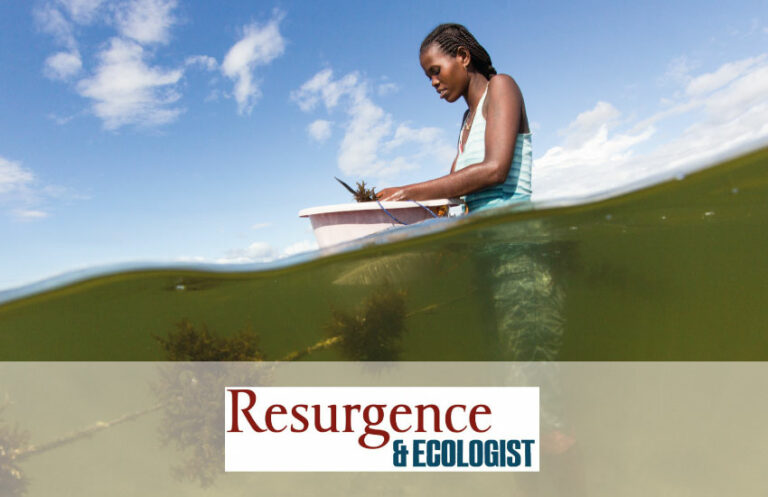David Johnson and Carina Hirsch of Resurgence & Ecologist tell the story of Irene, a resident of Tampolove village in remote southwest Madagascar, and of Blue Ventures’ decision to start offering family planning services.
Irene was still at school when she had her son. With little to no access to health care, she would have had to walk 30 miles to the nearest clinic to access a modern method of contraception. Women like her were having on average seven children, and faced a 1 in 20 risk of dying in pregnancy or childbirth – many thousands of times higher than in the UK. The population of the region was doubling every 10 to 15 years, placing increasing pressure on fisheries, and couples were struggling to catch enough fish to feed their families.
So women sought help from an organisation working in the area: Blue Ventures, a marine conservation social enterprise that works in many remote communities that often rely almost entirely on fishing for their livelihoods.
“Women were telling us how they desperately wanted better access to family planning services, and because we were already partnering with these communities on livelihoods and natural resource management initiatives they turned to us for help,” said Vik Mohan, medical director at Blue Ventures. “So we took what felt, at the time, like a bold and unconventional move [for a conservation organisation], and we opened our own family planning services in the community.”
Read the full article from Resurgence & Ecologist: The role of reproductive health and rights in conservation
Watch Vik Mohan’s TEDxExeter talk on how listening to communities can help save our oceans.























